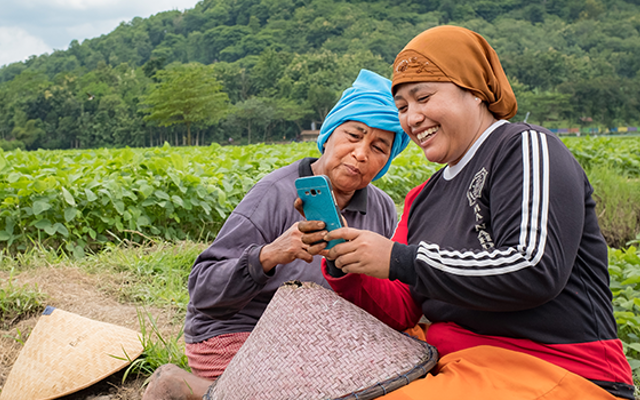GSMA Activities in ICT4D Digital Development Programs
The GSMA is a global trade association that represents the interests of mobile operators and other stakeholders in the mobile communications industry. In the context of ICT4D (Information and Communication Technologies for Development), the GSMA plays four key roles:
- Facilitating dialogue: The GSMA facilitates dialogue between mobile operators, development organizations, and other stakeholders on the use of mobile technologies for development. This includes convening events and workshops to discuss best practices, challenges, and opportunities in the field.
- Providing technical assistance: The GSMA provides technical assistance to mobile operators and other stakeholders on the use of mobile technologies for development. This includes the development of tools and resources, such as guidelines and case studies, to support the implementation of ICTD projects and initiatives.
- Conducting research: The GSMA conducts research on the impact and potential of mobile technologies for development. This includes the publication of reports and other research materials that provide insights and evidence on the use of mobile technologies in various sectors, such as healthcare, education, and agriculture.
- Advocating for policies and initiatives: The GSMA advocates for policies and initiatives that support the use of mobile technologies for development, and works to raise awareness about the potential of these technologies to benefit communities and individuals.
Overall, the GSMA plays a key role in promoting the use of mobile technologies for development, and in supporting the implementation and scaling of ICTD projects and initiatives.
5 Tips for Greater Inclusivity in Human Centered Design Activities
Human-centred design has become something of a buzzword in the humanitarian sector. But what does it actually mean? In the simplest terms, human-centred design...
Apply Now: £250,000 for Your Assistive Digital Technology in Africa & Asia
The coronavirus pandemic has demonstrated connectivity is a fundamental right. Never before has it been so important for people across the world to access daily...
Apply Now: £2.5 million for Mobile Internet Adoption and Digital Inclusion
Mobile networks have become the primary way of accessing the internet in low- and middle-income countries (LMICs), driving economic growth, enabling access to life-enhancing...
10 Insights on Mobile Usage by Persons with Disabilities in Kenya and Bangladesh
Over a billion people worldwide live with a form of disability. This represents 15 per cent of the global population; 80 per cent of whom live in a low- or middle-income...
The Main Drivers of Mobile Phone Ownership Will Surprise You
Mobile phone services were introduced in Nigeria in 2001. Yet, we still don’t really know who owns a mobile phone in Africa’s most populous country....
Apply Now: £1,760,000 for Your Agriculture Technology Innovation
Smallholder farming is a challenging enterprise. There are around 500 million smallholder farmers in the world, and they produce up to 80% of the food consumed...
Apply Now: £1.1 Million in Grants for Humanitarian Technology Solutions
The GSMA Mobile for Humanitarian Innovation Fund promotes innovation in the use of mobile technology to address humanitarian challenges. It supports solutions to...
How Start-Ups Can Partner with Mobile Network Operators
Mobile devices in emerging markets are becoming ubiquitous. By 2020, 80% of global unique mobile subscribers will be in emerging markets. While this exponential...
Apply Now: £900,000 for Rural Connectivity Projects in Ghana and Uganda
Mobile internet connectivity brings a wide range of social and economic benefits by helping to promote digital inclusion and supporting the delivery of essential...
10 User-Centered Design Principles for mHealth Program Success
Mobile health services delivered over voice (IVR, helplines), text channels (SMS and USSD) and, increasingly, rich media (online content and apps), provide much-needed...











